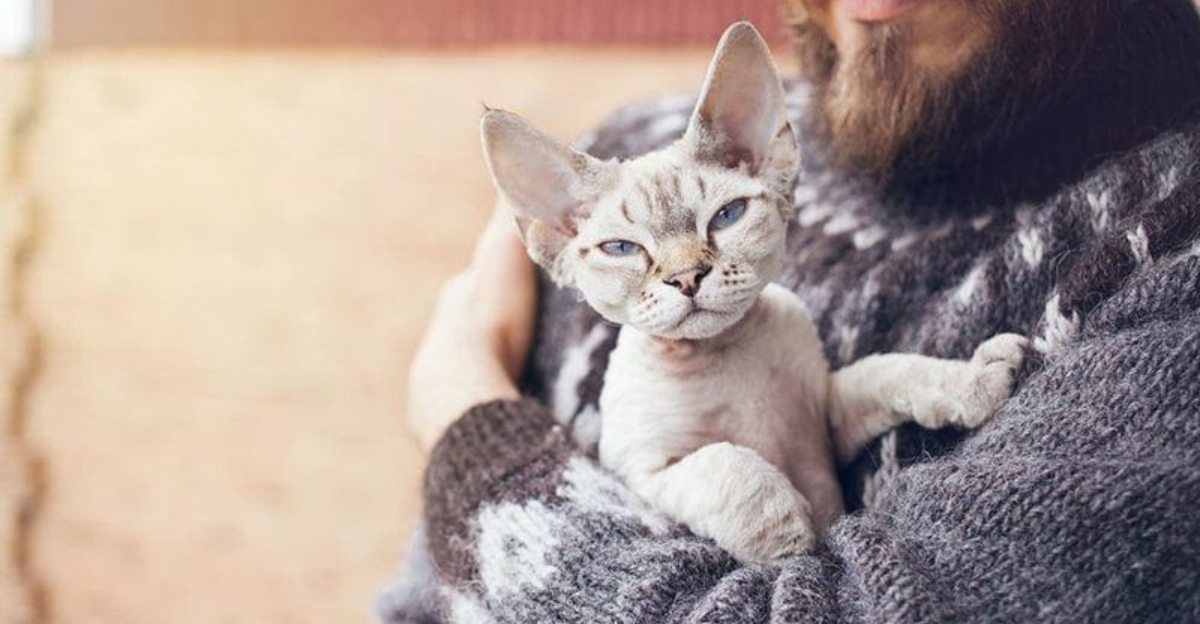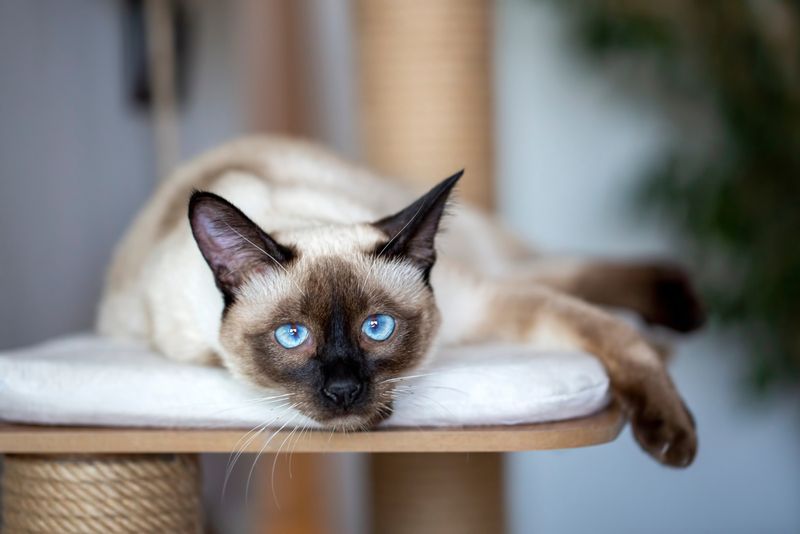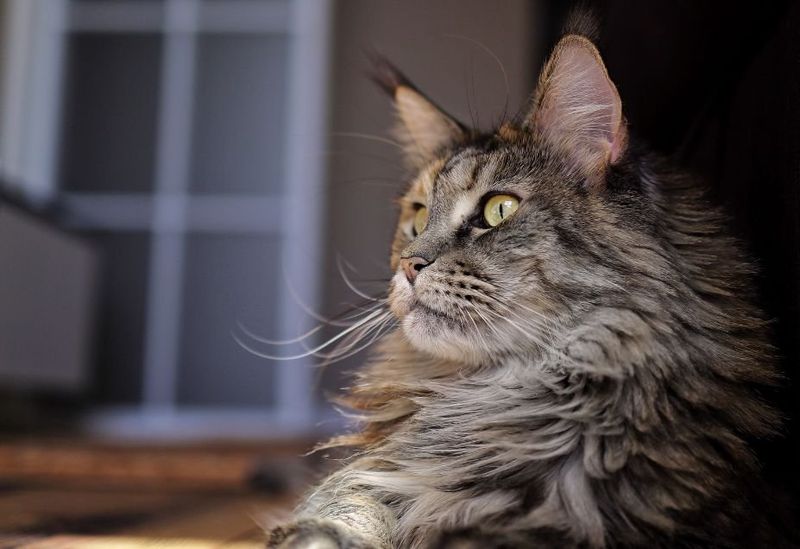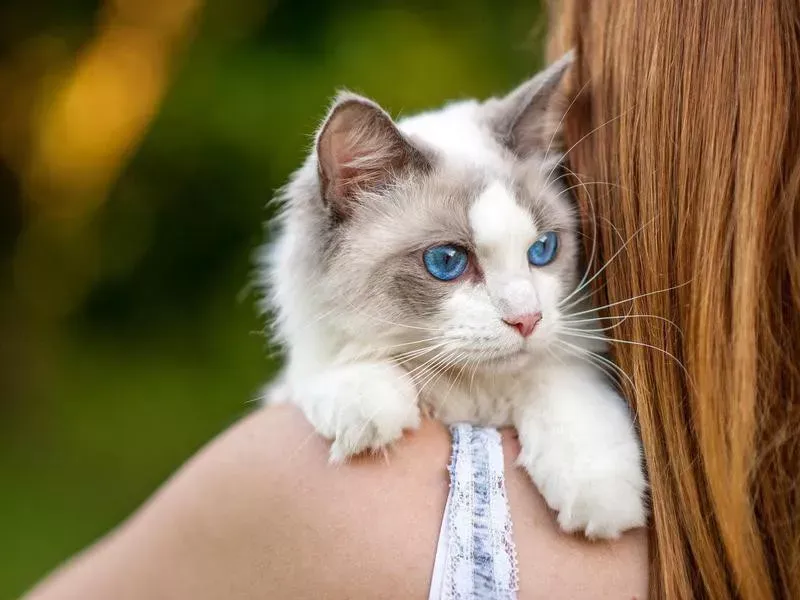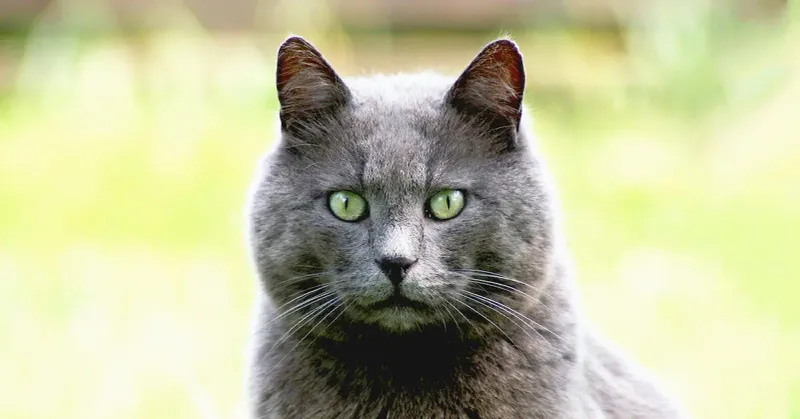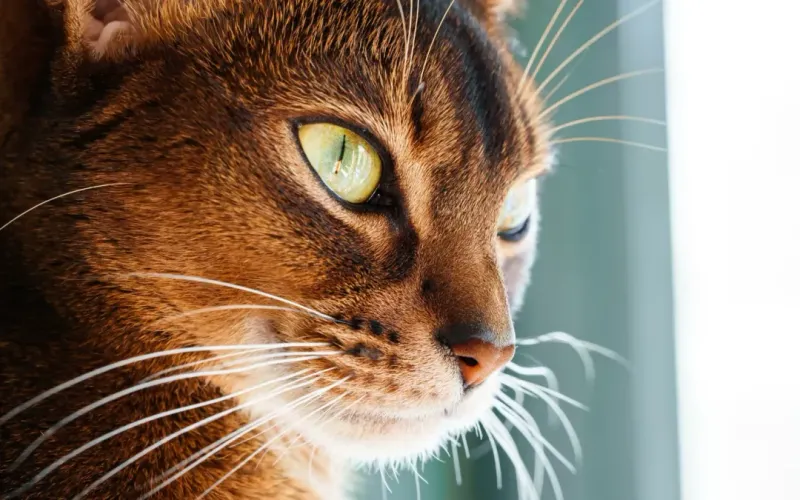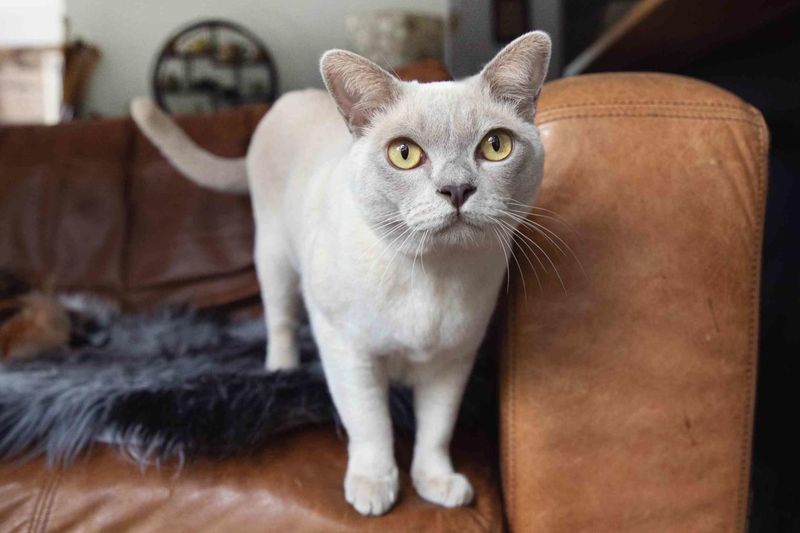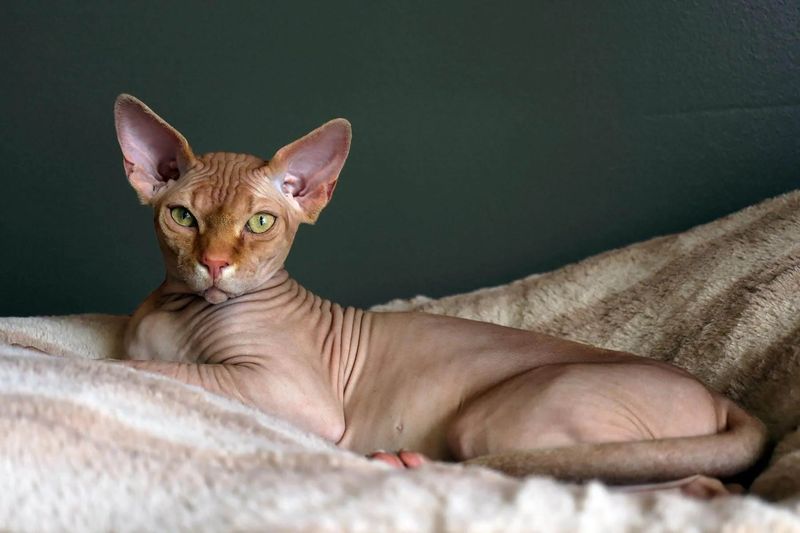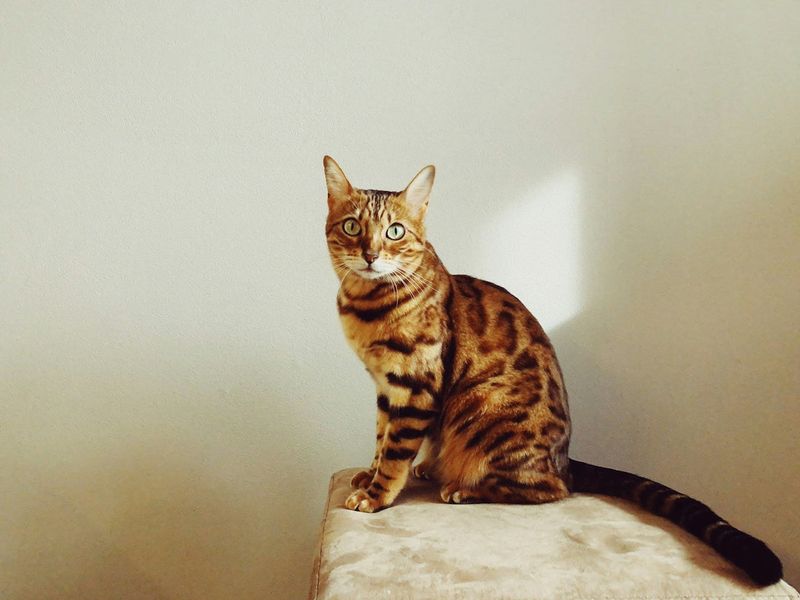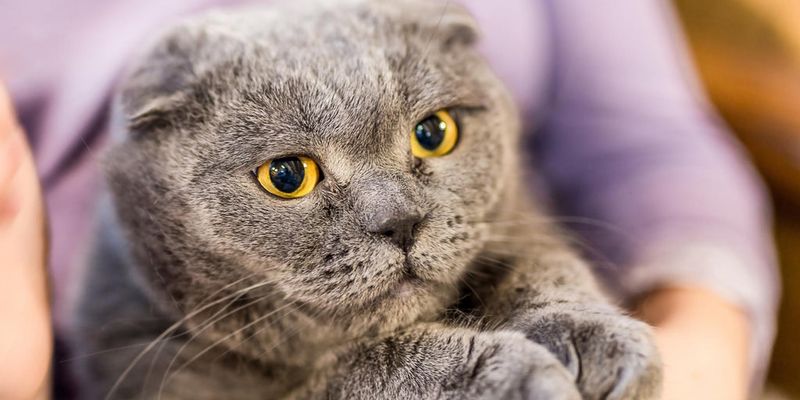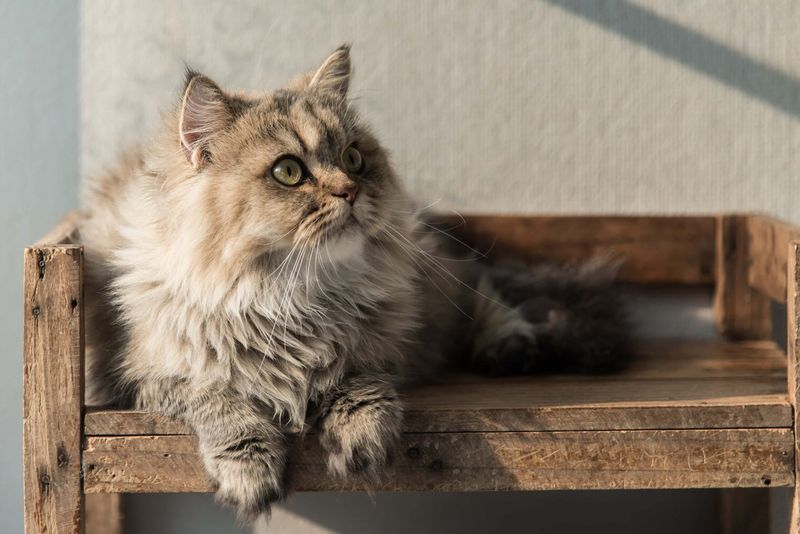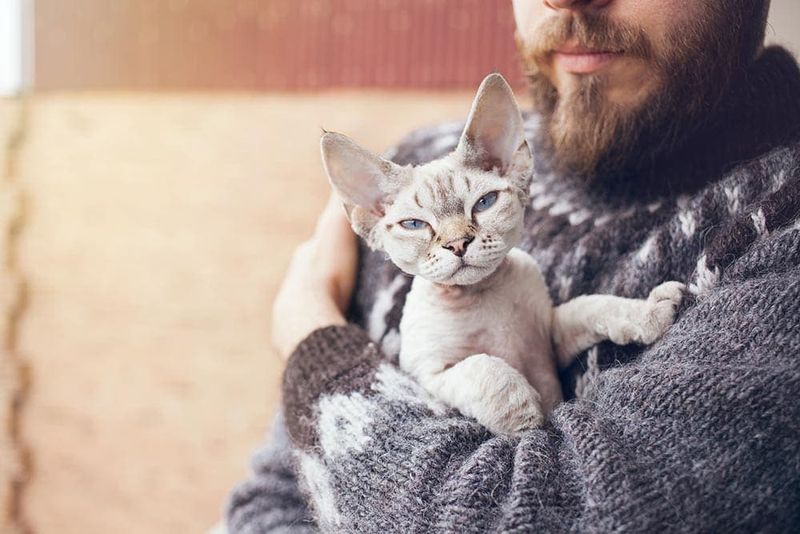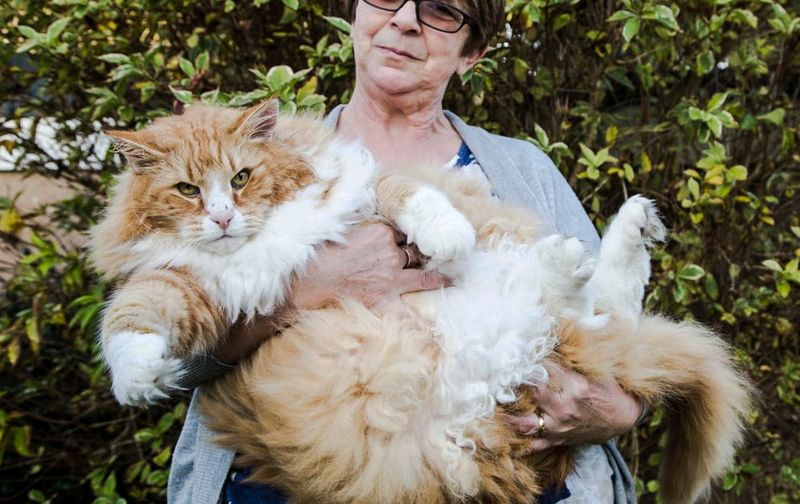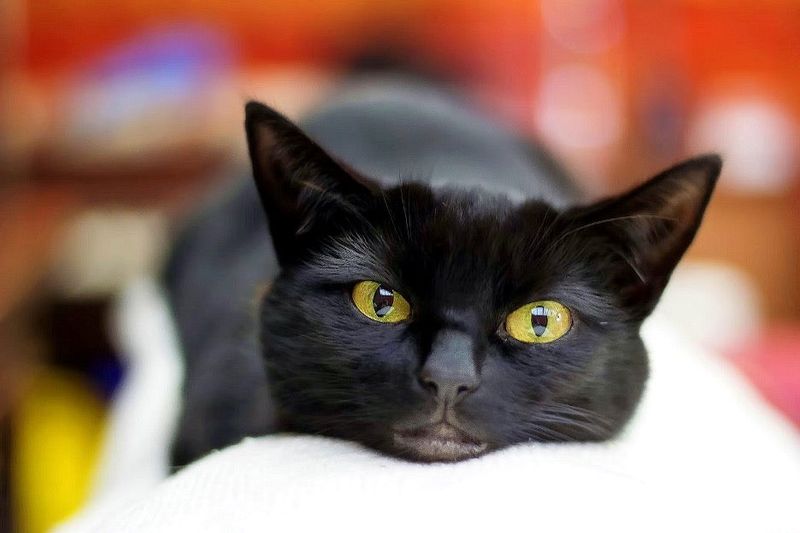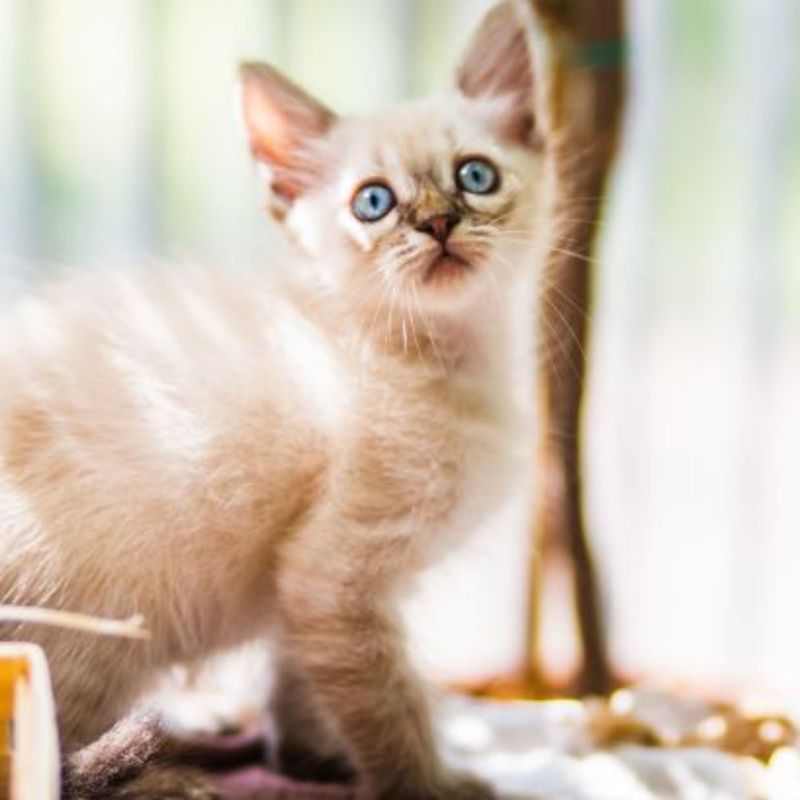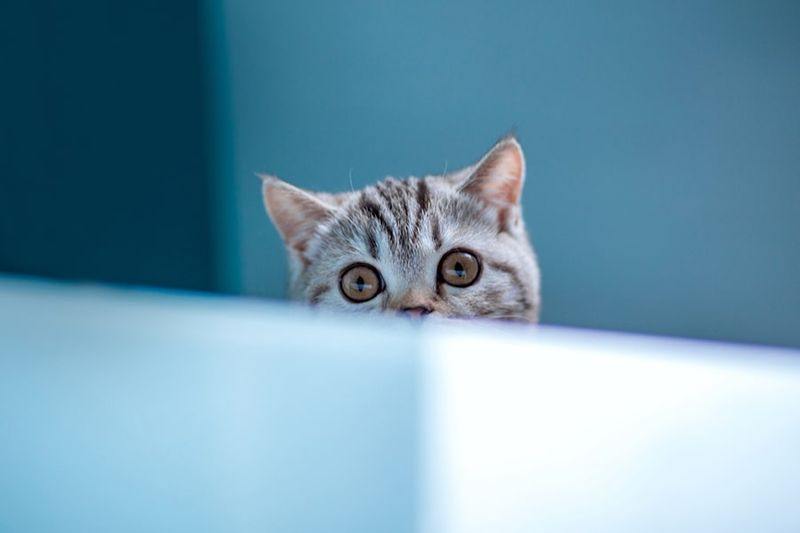📖 Table of Content:
For centuries, cats have intrigued people with their quiet presence and enigmatic behavior. Their sharp instincts and heightened awareness often spark curiosity about what they can truly sense. Observations of their behavior hint at abilities that go beyond ordinary perception.
Many have noticed cats acting unusually attentive or anxious before a medical issue is discovered. Whether it’s curling up beside someone with a fever or avoiding a person about to fall ill, these patterns feel more than coincidental. Such moments raise the question of whether cats are simply observant—or intuitively in tune with human health.
Science has begun exploring the possibility that feline companions detect illness through scent, behavior, or routine disruption. While evidence is still emerging, real-world stories continue to fuel fascination. These silent watchers may be more aware of their humans than previously believed.
1. Siamese
Siamese cats have an uncanny ability to detect changes in their owner’s body temperature. Their temperature-sensitive coat coloration is just one sign of how attuned they are to heat variations.
Many Siamese owners report their cats lying on areas of their bodies that later turned out to have inflammation or illness. These vocal cats might become even more talkative when they sense something’s wrong with their human companions.
Their intelligence and observational skills make them particularly sensitive to routine disruptions that might occur when someone isn’t feeling well.
2. Maine Coon
Gentle giants of the cat world, Maine Coons have been reported to detect seizures before they happen. Their natural nurturing instinct makes them especially attentive to changes in their human’s behavior or health status.
Some Maine Coon owners with diabetes have noticed their cats pawing at them or becoming unusually clingy before blood sugar drops. Their large size allows them to provide both emotional support and physical presence when they sense their owner needs help.
These intelligent cats can learn patterns associated with health issues and respond accordingly.
3. Ragdoll
Ragdolls might seem laid-back, but their relaxed nature makes them incredibly perceptive to stress and anxiety levels in humans. These cats often know when their owners need emotional support during health struggles.
Their tendency to follow their humans from room to room becomes more pronounced when they sense illness. Ragdolls have been known to place themselves on areas of pain or discomfort, sometimes even before the person realizes there’s a problem.
The docile temperament of Ragdolls makes them excellent companions for those with chronic health conditions.
4. Russian Blue
With an exceptional sense of smell, Russian Blues can detect chemical shifts in the human body. These subtle changes might signal illness long before it’s apparent to others. Their awareness makes them surprisingly attentive companions during times of discomfort.
Owners with migraines report their Russian Blues becoming protective and attentive hours before symptoms appear. These cats maintain a consistent routine and may become visibly distressed when their humans deviate from normal patterns due to illness.
Russian Blues form deep bonds with their owners, making them particularly tuned in to physical and emotional states that might indicate health concerns.
5. Abyssinian
Active and observant Abyssinians excel at noticing behavioral changes in their humans. Their high intelligence allows them to connect certain symptoms with specific actions from their owners.
These cats may become more attentive and less playful when they sense illness. Abyssinians have been reported to pat or paw at areas of their owner’s body that later turned out to have developing health issues.
Their naturally curious nature means they’re constantly monitoring their environment, including subtle changes in their human’s health that might go unnoticed by others.
6. Burmese
Burmese cats form incredibly strong bonds with their owners, making them especially attuned to health changes. Their people-oriented nature means they’re constantly monitoring their human’s well-being.
Owners with heart conditions have noted their Burmese cats becoming particularly clingy or placing paws on their chest before episodes. These intuitive felines may change their sleeping positions to be closer to areas of their owner’s body that are experiencing problems.
Burmese cats’ legendary loyalty makes them stay close when they sense their human might need assistance.
7. Sphynx
Hairless Sphynx cats have a unique advantage in detecting body temperature changes. Their need for warmth means they’re constantly seeking heat sources, making them sensitive to fever or unusual temperature variations.
Sphynx owners report their cats avoiding areas of the body that later showed infection or inflammation. These social cats become even more attentive when their humans are unwell, sometimes refusing to leave their side.
Their lack of fur might enhance their ability to sense subtle electrical changes that occur with certain health conditions like seizures.
8. Bengal
Descended from jungle cats, Bengals come equipped with heightened hearing and awareness. These traits might enable them to detect subtle signs of physical distress in humans. Their watchful nature often reveals itself when someone’s health begins to shift.
These energetic cats sometimes become unusually calm around people who are unwell. Bengal owners have shared stories of their cats becoming protective guardians during illness, staying close and monitoring their humans carefully.
Their high activity level makes any behavior change—like suddenly becoming gentle and attentive—particularly noticeable when they sense health issues.
9. Scottish Fold
Scottish Folds have a remarkable ability to sense emotional distress that often accompanies health problems. Their folded ears don’t diminish their ability to detect subtle changes in their environment or their owner’s condition.
These cats often become more vocal and demonstrative when they sense something is wrong. Scottish Fold owners with depression or anxiety have noted their cats providing consistent comfort during difficult episodes, sometimes before the person recognizes their own symptoms.
Their tendency to form strong bonds makes them particularly responsive to changes in their human’s health status.
10. Persian
Behind their luxurious coats, Persians possess a keen awareness of their owners’ health patterns. Their calm demeanor allows them to notice subtle changes that more active cats might miss.
Persians have been known to refuse to leave the side of owners who were developing serious illnesses. Their characteristic staring might actually be close monitoring of their human’s condition and behavior.
Despite their reputation for being aloof, these cats often become surprisingly attentive when they sense their owner is experiencing health difficulties.
11. Devon Rex
With their oversized ears, Devon Rex cats are uniquely equipped to pick up on even the faintest sounds. Subtle shifts in breathing or movement rarely escape their notice. When a human feels unwell, their typically energetic behavior often softens into quiet attentiveness.
Owners with respiratory conditions report their Devon Rex cats becoming especially attentive before symptom flare-ups. These sensitive cats may paw at or lie on areas of their owner’s body that are experiencing problems, almost as if providing targeted therapy.
Their people-oriented personality makes them particularly attuned to changes in their owner’s health and behavior.
12. Norwegian Forest Cat
The rugged background of Norwegian Forest Cats contributes to their strong yet perceptive nature. Years spent as working farm cats enhanced their ability to pick up on subtle signals around them. This includes an uncanny awareness of fluctuations in human well-being.
These cats have been reported to become protective of owners developing illnesses, sometimes positioning themselves as guardians. Norwegian Forest Cat owners have noted their pets becoming unusually gentle and attentive during health crises.
Their intelligence allows them to associate certain human behaviors with health conditions, making them responsive to patterns that might indicate problems.
13. Bombay
Bombay cats form intense bonds with their humans that enhance their ability to detect health changes. Their tendency to follow their owners everywhere becomes even more pronounced when they sense something might be wrong.
These sleek black cats have been known to alert to blood sugar changes in diabetic owners. Bombays may become more vocal or physically demonstrative when they detect health issues, sometimes pawing at their humans or meowing insistently.
Their people-centered nature makes them particularly attuned to subtle shifts in their owner’s physical or emotional state.
14. Tonkinese
Blending the perceptiveness of Siamese with the insightfulness of Burmese, Tonkinese cats are uniquely attuned to their humans’ well-being. When sensing illness, their typically vocal nature often intensifies, as if trying to communicate concern.
Owners have reported their Tonkinese cats becoming unusually gentle and attentive before migraine episodes. These social cats may try to distract their humans from pain by bringing toys or engaging in gentle play when they sense discomfort.
Their intelligence and observation skills make them quick to notice and respond to changes in their owner’s health status.
15. American Shorthair
American Shorthairs bring practicality to health detection with their steady, observant nature. These cats excel at establishing routines and noticing when their humans deviate due to illness.
Their history as working cats gives them a pragmatic approach to monitoring their family’s wellbeing. American Shorthair owners have noted their cats becoming protective and attentive during illness, sometimes positioning themselves as sentinels near sick family members.
Their adaptable nature means they can adjust their behavior to provide comfort and support when they sense their humans are experiencing health challenges.
